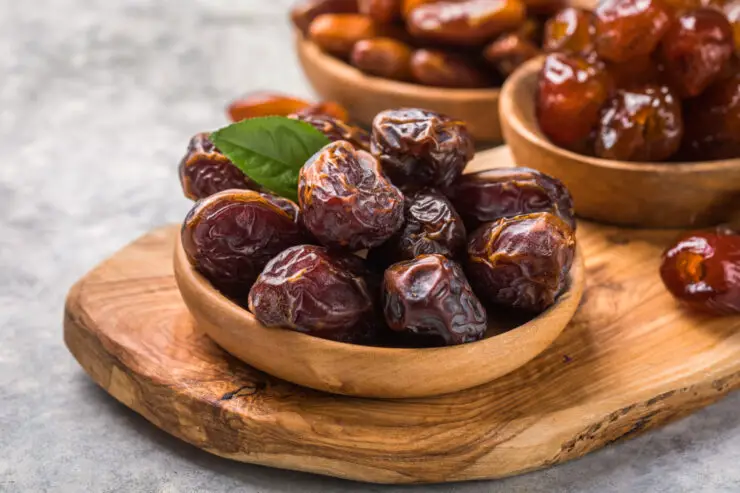As an Amazon Associate I earn from qualifying purchases. Please read the disclaimer for more info.
Have you ever been to Africa? If not, you’re missing out on some of the most delicious fruits in the world! From exotic delicacies like baobab fruit to more well-known varieties like mangoes and oranges, there’s something for everyone. Here are 19 African fruits you need to try!
Those familiar with African cuisine know that the continent is home to a bounty of different fruits, each with its own unique flavor and texture. From the sweet Melano oranges of Uganda, to the tart-tasting tamarind of Ethiopia, there is no shortage of delicious treats growing on African soil. Here’s a closer look at some African fruits you may not have tried before:
Baobab Fruit
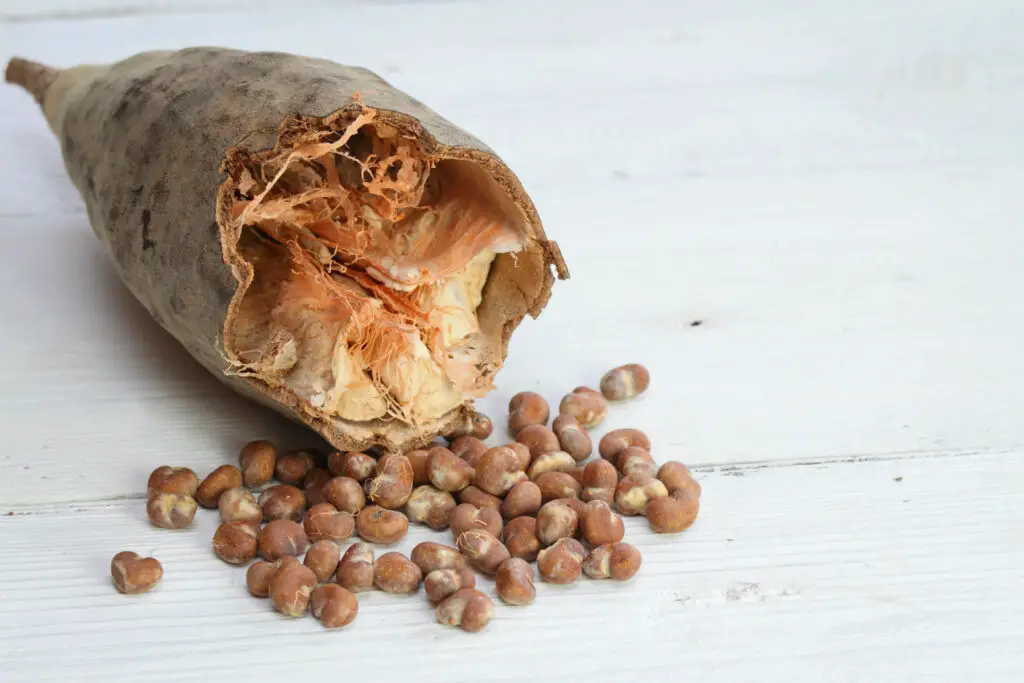
African Baobab fruit is a truly remarkable African fruit. Found mainly in African savannas, the tree it comes from has an ancient and iconic appearance – thanks to a magnificent trunk that can reach up 10 meters in circumference!
Part of its iconicity also comes from the fact that it often lives for centuries – making it a symbol of African heritage and longevity. According to African legend, the gods angry at the Baobab’s pride uprooted and flung it upside down – hence its strange appearance today!
This uniquely chalky yet citrusy fruit has a variety of uses. Enjoy it as is, squeeze the juice for added refreshment in your drink, or use its unique flavor to spice up a salad.
The Baobab’s edible fruits are superfruits packed with Vitamin C and other powerful nutrients. Rich in antioxidants, they have multiple health benefits, such as boosting immunity, supporting digestion, and reducing inflammation.
The African Baobab fruit, found in most African countries, is as remarkable in its nutrition as its long-standing history – making it well worth getting familiar with!
African Star Apple
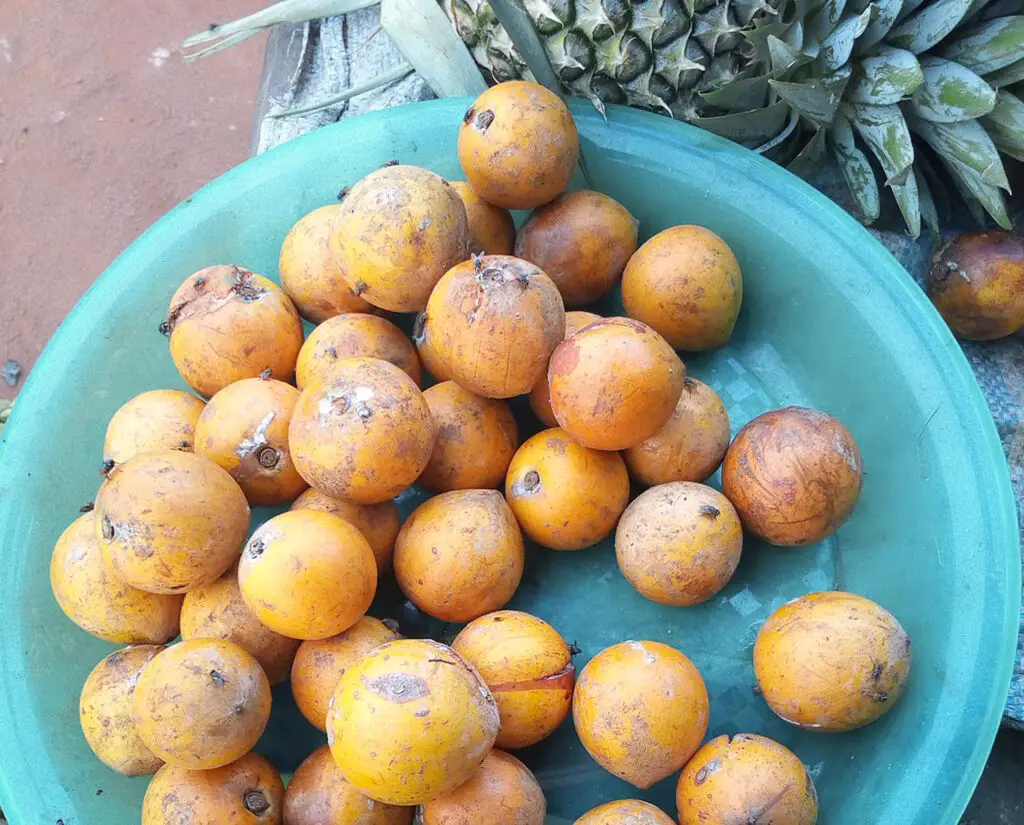
The African Star Apple is a native delicacy with a unique taste and a rich history. These star-shaped fruits have juicy pale-yellow seeds that are filled with a sweet flavor.
In African tradition and culture, the African Star Apple, also known as African Cherry, is often shared with loved ones during special occasions to strengthen bonds.
The star apple is renowned for its nutritional value too as it is loaded with vitamins and minerals like calcium, phosphorous, iron, zinc and Vitamin A & C.
Kola Nut
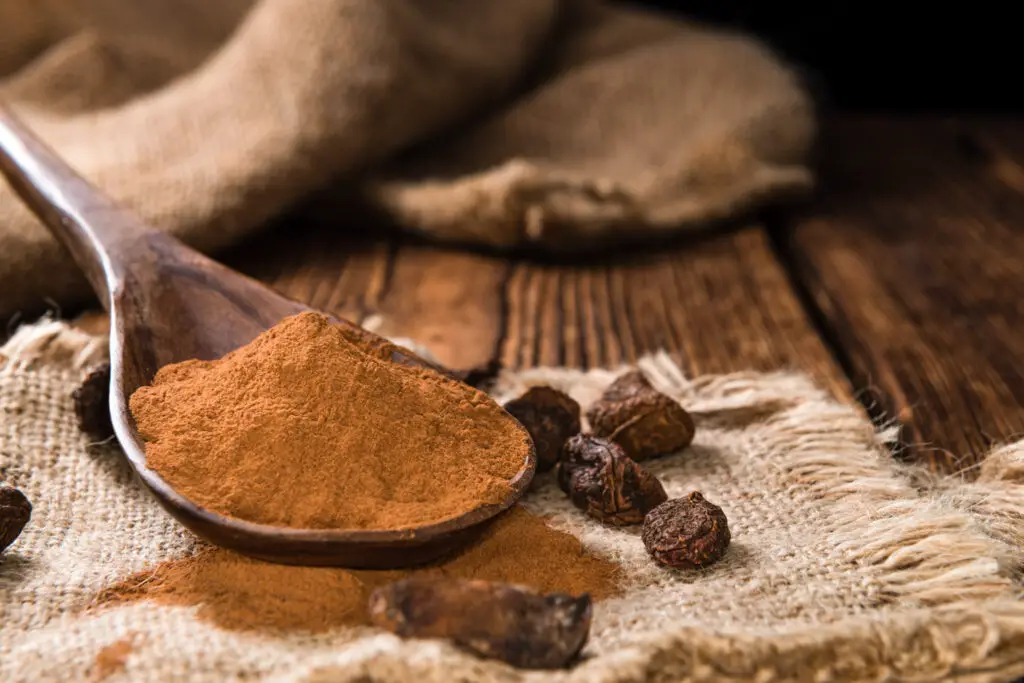
The African kola nut has a long and interesting history that is still explored to this day. Native to the rainforests of West African nations such as Nigeria and Ghana, the kola nut was highly revered in African culture.
From being used as currency to its sacred spiritual importance for many African tribes, the tree-borne fruit greatly impacted African culture. Today it is featured in many popular African dishes and coffees, not to mention its extensive use in traditional medicine and tonics.
A fascinating African fruit with a worldwide presence, the kola nut continues to thrive in its original African homeland both culturally and commercially.
Matoke
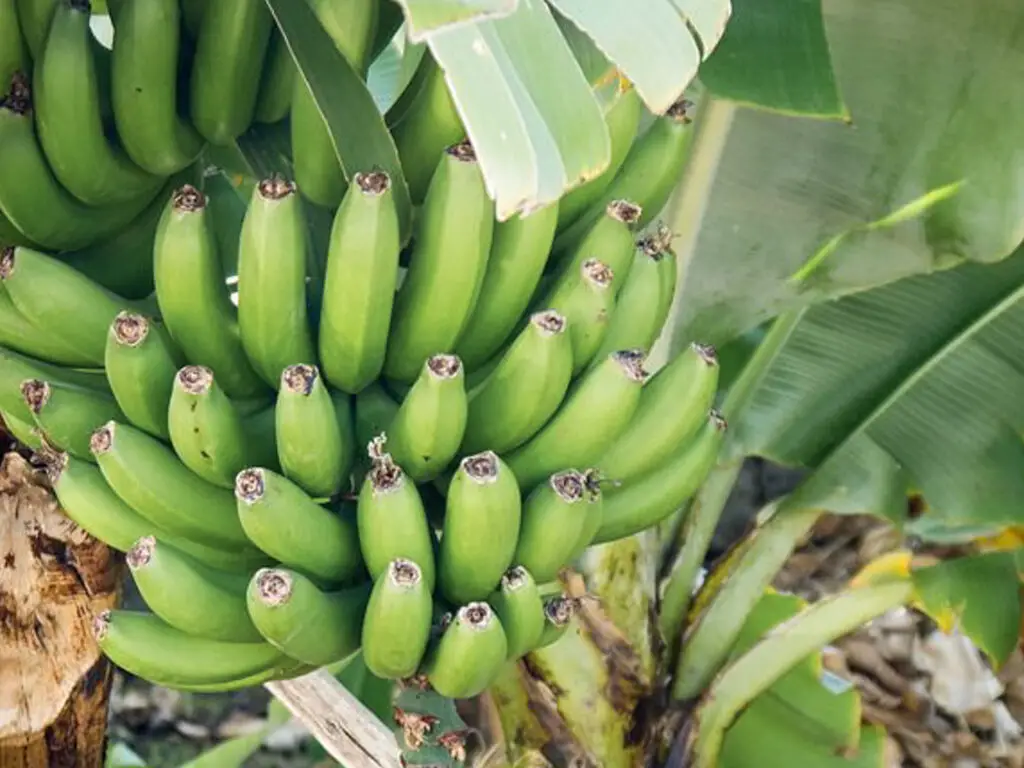
Matoke, is an African fruit packed with flavors and benefits. Native to Uganda, Matoke is a starchy cooking banana variety that features several minerals and vitamins such as potassium and Vitamin C.
Matoke, also known as the East African highland banana, provides energy for the body, improves digestion, and boosts overall immune system health.
Matoke is naturally low in fat and high in carbohydrates and can be enjoyed raw or cooked in soups, stews, curries, mashed dishes, and much more!
Related: Kenyan Food: 28 Traditional Dishes to Try
Date
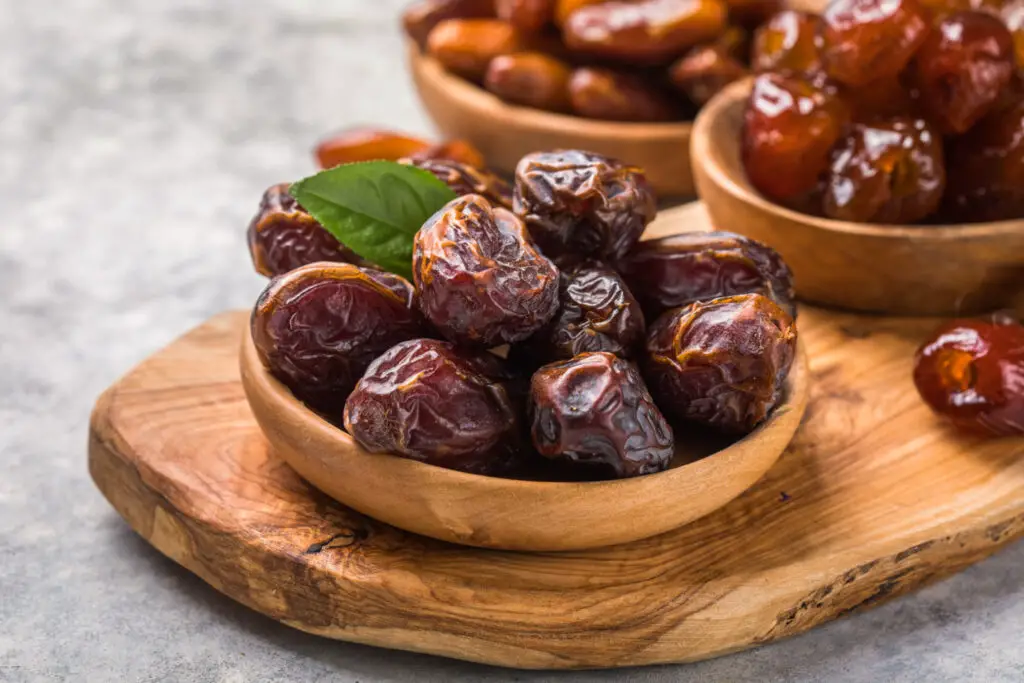
Dates are beloved for their dense, sweet, and chewy texture and their exotic sweetness. They come in many varieties and shapes, from small, medium to large-sized fruits.
Indeed, aficionados of this African fruit find its different textures, flavors, colors, and scents quite devine. Dates offer great nutritional value, like being an energy booster due to their high sugar content, are packed with vitamins, and have antioxidants.
I came to really appreciate dates thirty years ago in Northern Africa, Egypt to be exact, where they are a delicious treat and often served with tea.
Ackee
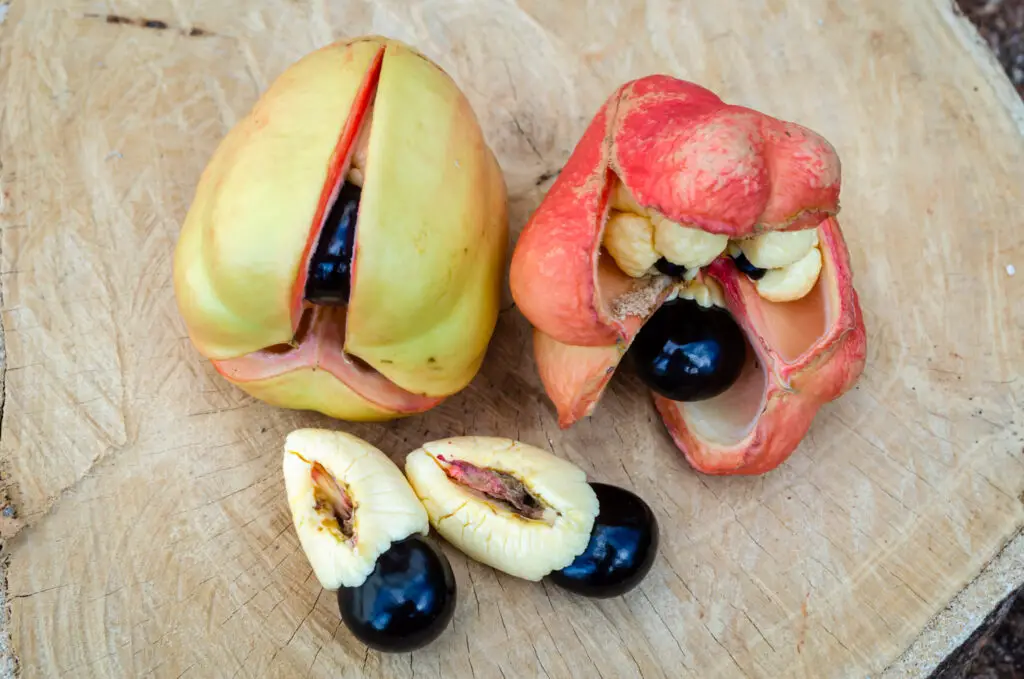
The African origins of Ackee make it a unique and beloved fruit across the continent. Its distinctive taste adds an African flare to dishes, adding some sweetness and a hint of tartness.
The outside of the Ackee fruit looks bland, as if it could never transform into a colorful treat; however, a bright yellow pulp with black seeds greets you when opening it up.
Enjoyed in various African dishes today, Ackee can be boiled and fried, used as fillings in bread or cakes, and plays a big part in African cuisine.
African Peach
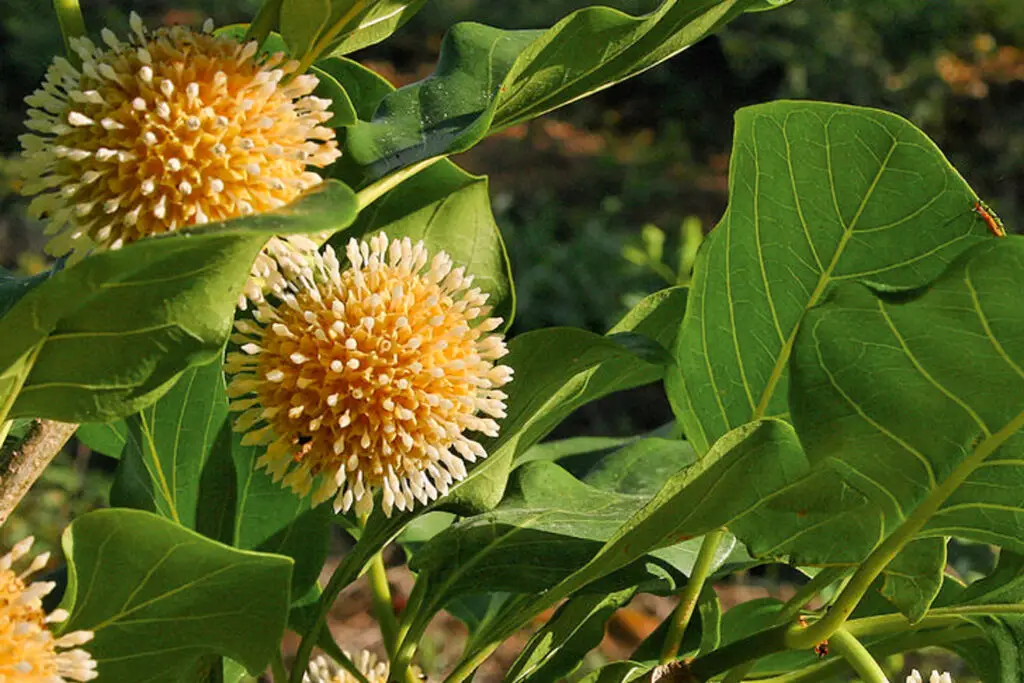
African Peach is an African fruit that has been around for centuries, enjoyed by African cultures both historically and today.
African Peach is a sweet, juicy yellow fruit with a subtle floral aroma and creamy texture. Its flavor is comparable to berries, making it a popular addition to jams, pies, and smoothies.
These fruits are best eaten by themselves but can be used in various recipes.
Tamarind
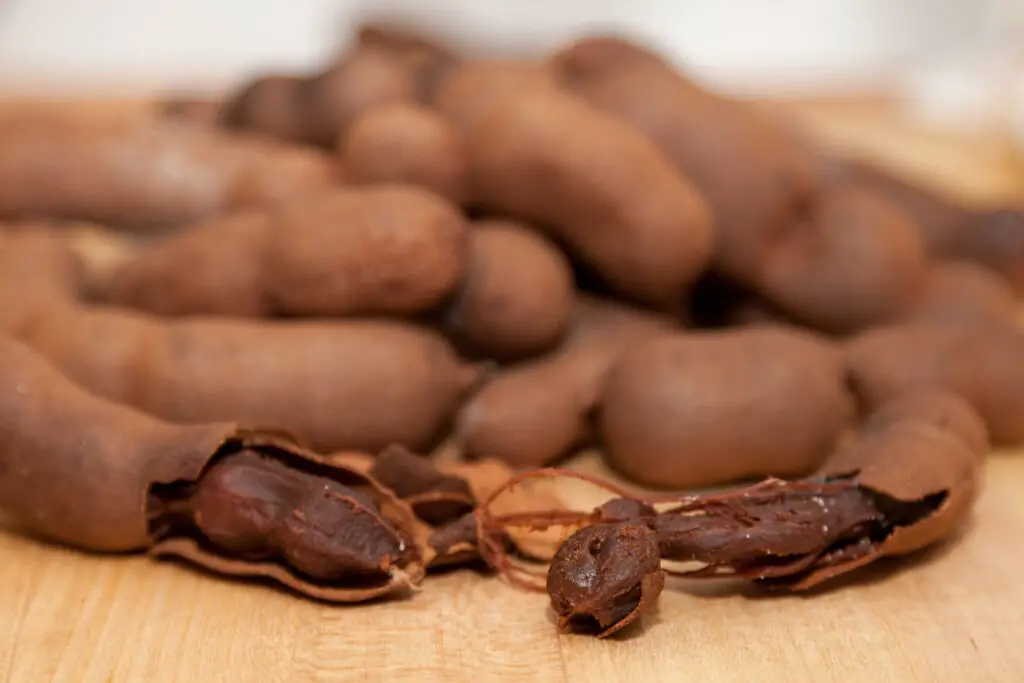
African fruits are some of the most unique in the world, and tamarind is a shining example. With its sweet and sour taste, tamarind has been a popular snack for centuries.
Tamarinds can be eaten raw, but the tart flavor can also enhance jams, candies, soups, and sauces. It has also been used medicinally for thousands of years – many cultures believe it can improve eyesight and treat digestive issues.
Despite being cultivated primarily in African countries like Nigeria, Senegal, and Sudan, tamarinds can now be found around the world due to globalization.
Marula
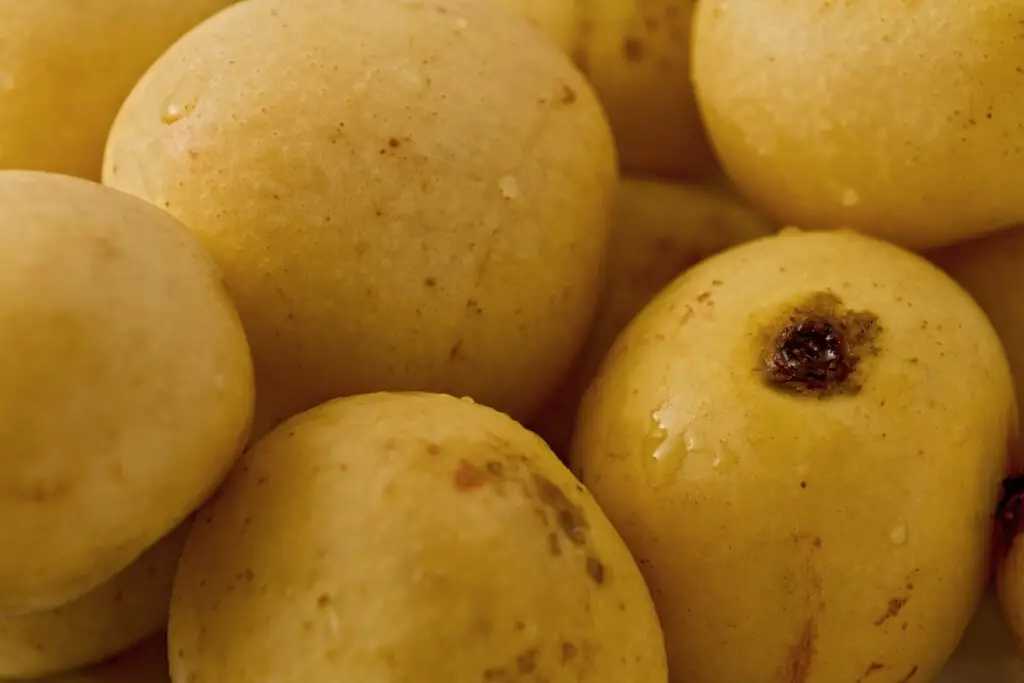
African fruits are a wonderful part of African cuisine, and the marula fruit is an African wonder. Grown in abundance on the continent, its creamy yellow or pinkish texture has been a staple among African diets for centuries.
Rich in vitamins and minerals, this juicy delight boasts a unique flavor that is sure to tantalize your palate. Not only is marula easy to find throughout African countries, but it can also be made into snacks and desserts like jams, preserves, and ice creams.
Ripe fruit doesn’t always have to be picked from a tree; some of the juiciest fruits can fall straight off a branch, then transform into their delicious self when it hits the ground. Nature knows best!
It’s no wonder this ancient African fruit has endured through the centuries as a popular part of African cuisine.
African Wild Mango
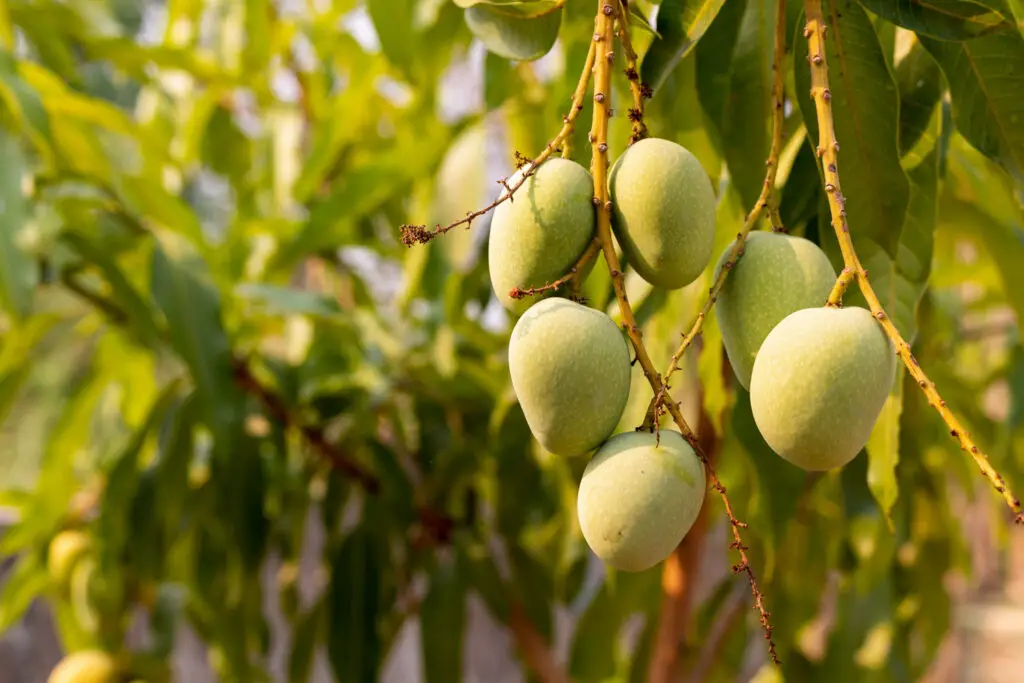
African Wild Mango, also known as the bush mango, is an absolutely amazing fruit that is capable of providing many different benefits.
Native to many tropical regions in west and central Africa, this green-yellowish-colored fruit comes packed with essential vitamins and minerals such as zinc, magnesium, vitamin A, vitamin C, and other antioxidants.
Not only delicious in taste but also beneficial for the human body in multiple ways, this fruit has been used by locals to help treat a range of ailments from colds and digestive problems to skin diseases like eczema.
All in all, this fruit truly deserves its name as the “Superfruit” — due to its countless health benefits!
Soursop
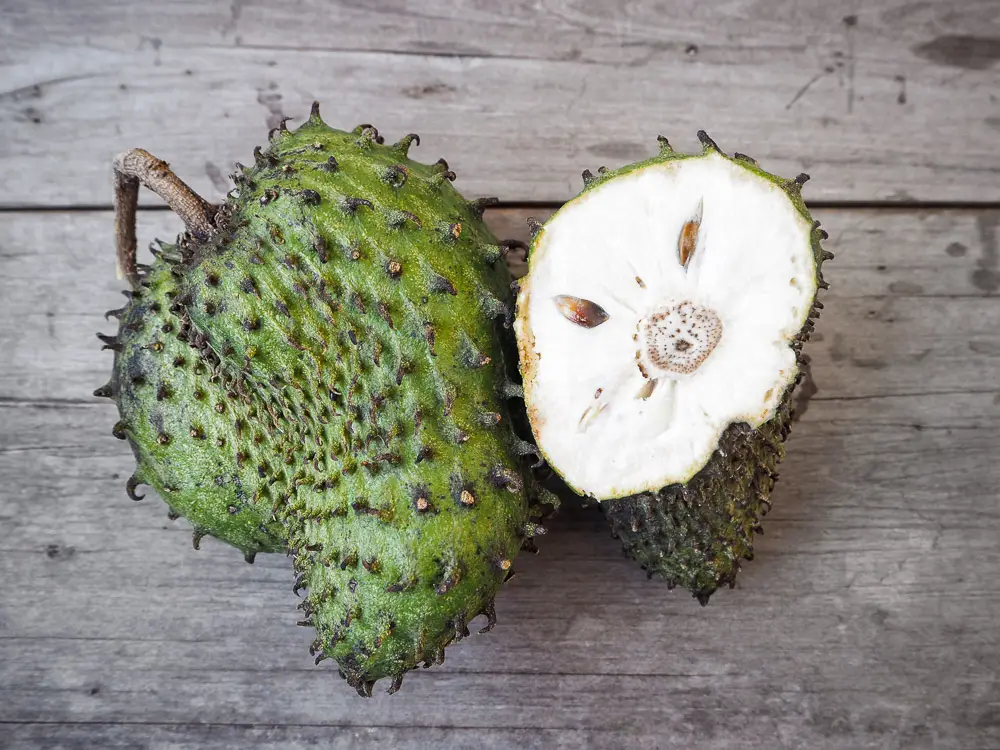
African soursop, also known as ‘vegetable-sugar’ or custard apple in some parts of the world, is a unique and flavorful fruit.
It is primarily grown in West Africa and is one of the most nutritionally dense fruits out there. African soursop is packed with vitamins such as vitamins C, E, B1, and B2, minerals like calcium and iron, antioxidants to fight off disease-causing toxins, and natural sugars to sweeten up each bite.
Not only does African soursop add delightful flavor to any dish, but it also has a host of health-related benefits that are sure to bring you loads of energy throughout your day!
From digestion support to anxiety relief and improved skin clarity, this spiny-skinned fruit has something for everyone!
Horned Melon
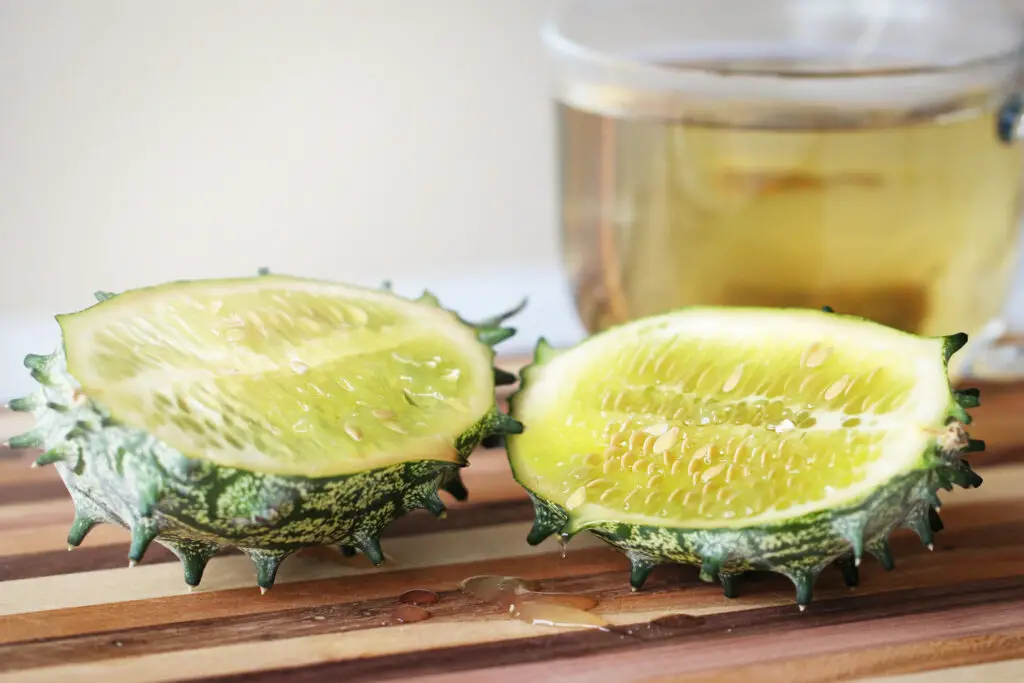
The Horned Melon, commonly called kiwano, is a truly remarkable fruit most commonly found in Africa.
Its bright, citrusy flavor and dramatic appearance are sure to turn heads! It’s usually lime green on the outside with spikes like a hedgehog, while its orange flesh is filled with black seeds.
Perfect for adding a touch of zing to salads or juices, this delectable treat is definitely one worth trying. Despite being a rare delicacy in the West, Africans have been enjoying the Horned Melon for centuries– and now you can too!
Watermelon
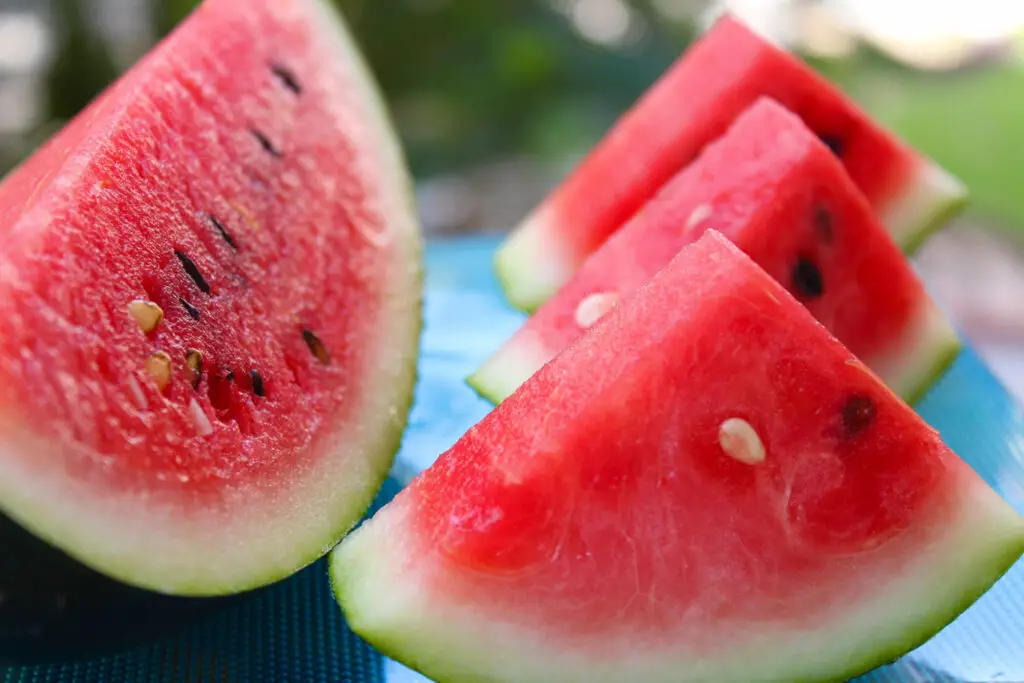
African Watermelon has been a staple in African diets for centuries and is widely grown across the continent. This fruit not only provides Africans with valuable nutrition but also serves as an important part of African culture.
The distinctive taste of African watermelons captures the unique flavors of Africa’s soil and climate, making them beloved by Africans everywhere.
It can be eaten fresh, made into juice, or cooked into traditional dishes. African Watermelon isn’t just a delight to eat – it also offers numerous health benefits, from its vitamin-rich flesh to its antioxidant-filled seeds.
Plantain
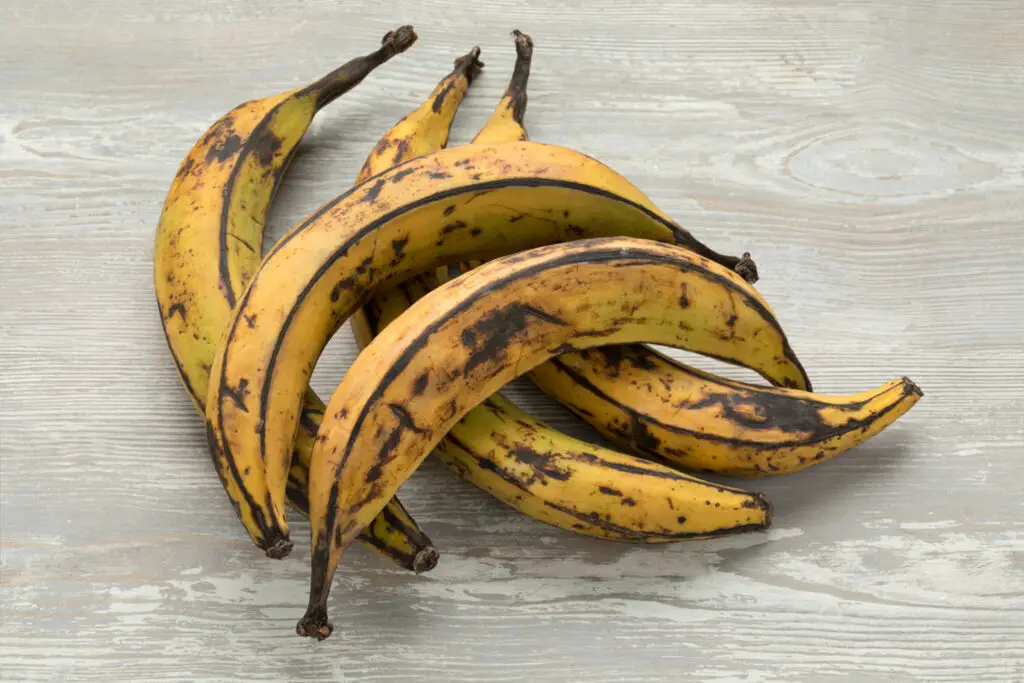
Plantains are an incredibly important crop in many parts of the world, particularly in Africa, where they are an essential component of many traditional recipes. Thanks to its versatility, it can be served up boiled, grilled, roasted, and even fried!
This fruit is also not just a great side dish – you can use it as a substitute for many dishes, such as French fries or mashed potatoes. It is also packed with nutrients thanks to its high potassium levels and dietary fiber.
With unique spices and seasonings, plantain can often be found at fire-roasted roadside markets. From West African jollof rice, East African beef and plantain stew, and even South African beds of fried ripe plantain coated with cinnamon – there is no shortage of tasty ways to enjoy this versatile little fruit.
These fruits aren’t just delicious food; they have provided sustainable employment for locals through crop harvests and are a critical source of nutrition for those on meager diets.
Bitter Kola
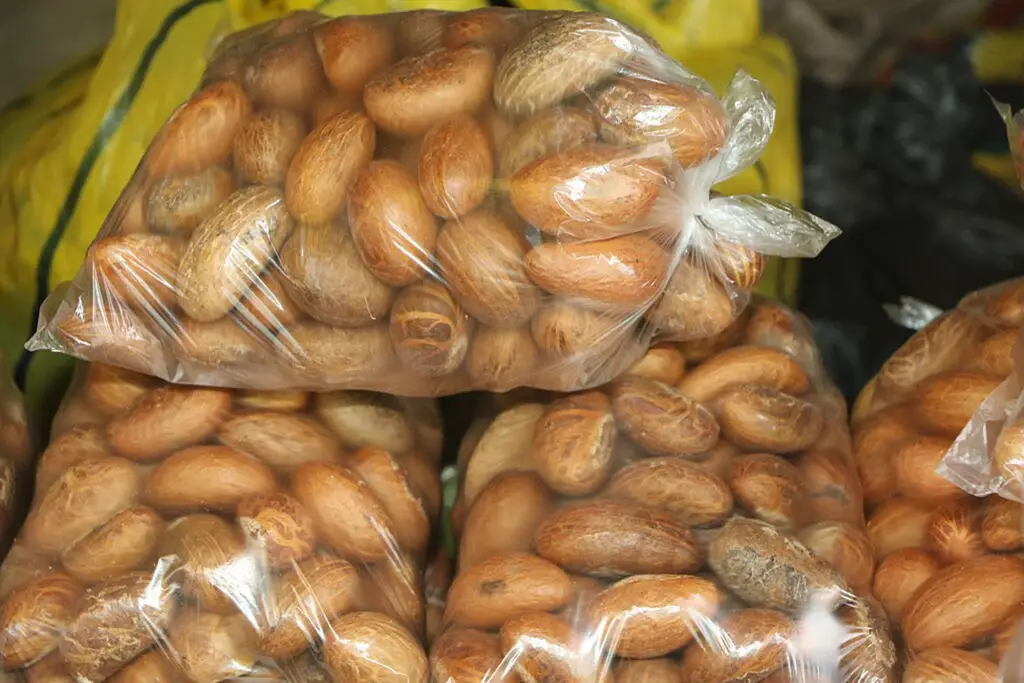
Known for its bitter flavor, Bitter Kola is a prized African nut native to tropical Africa (West Africa in particular) and praised for its health benefits. From cultures who believe in its healing powers to some who implore it as an aphrodisiac, Bitter Kola has wide-ranging uses.
Rich with protein, dietary fiber, magnesium, and iron, the nut is oftentimes used as a natural remedy for digestive ailments or simply eaten alone as a snack whose distinct bitterness balances out sweet dishes.
Its unique flavor allows it to pair well with anything from beverages to salads, and although you may find your taste buds taken aback by its intense flavor at first bite, you might also be surprised by how much you like it afterward!
West African Orange
The West African orange is among the most aromatic and flavorsome varieties in the world. It is a sweet fruit that is juicy and tart, with yellow-orange flesh.
This traditional orange has been grown in West African regions since ancient times. It is known that Africa’s fastest-growing economy produces over 5 million tons of oranges a year, and this fruit helps to feed millions of people across the continent.
The color of the waxy skin ranges from green to yellow-orange, and the texture runs from smooth to bumpy.
African Medlar fruits
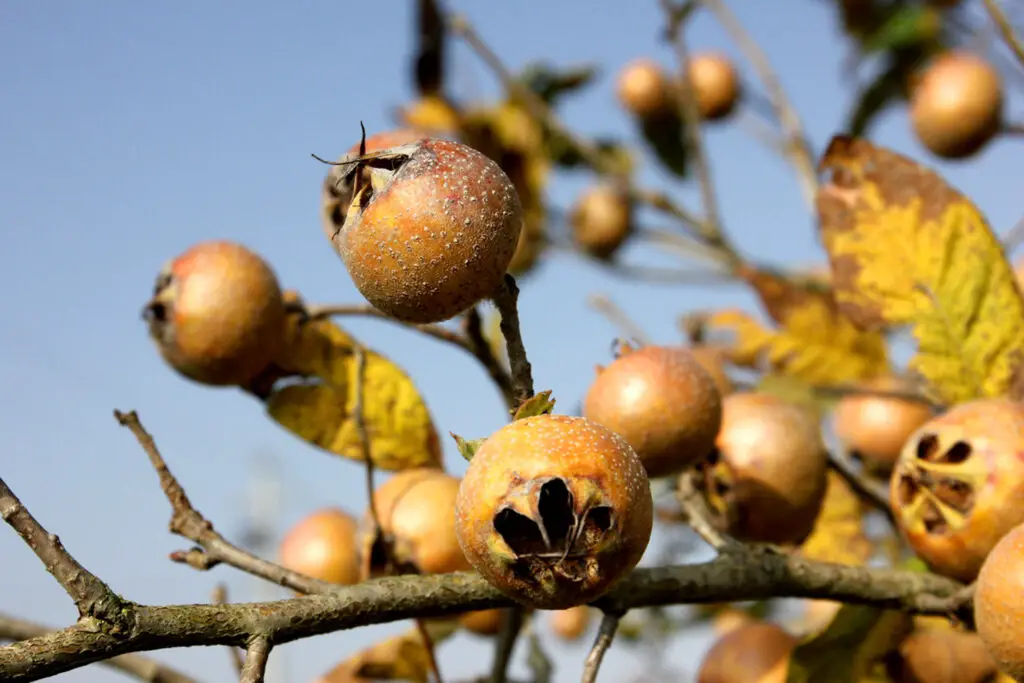
The African medlar fruit may be small, but it packs an abundance of flavor and texture. Its skin is thin, like a plum’s, yet more crunchy – the inside is bursting with sweet-tart flavors, and its fruit is fibrous.
When the fruit ripens, it goes from green to vibrant yellow. Ripe fruit is often eaten fresh with coconut cream or on salads for a burst of zest. Africans have also been dehydrating this fruit for centuries as one of their traditional snacks.
White star apple
White star apples are a truly remarkable fruit. Grown from five brown seeds arranged in the shape of a star and covered by creamy white flesh, their unique features make them a highly prized treat among apple fans around the world. Every fruity bite reveals an exquisite flavor that can be enjoyed raw or used as an extra special topping to pies, cakes and other desserts. Refreshingly juicy, these luscious apples are sure to entice and delight even the pickiest of eaters!
African Pear
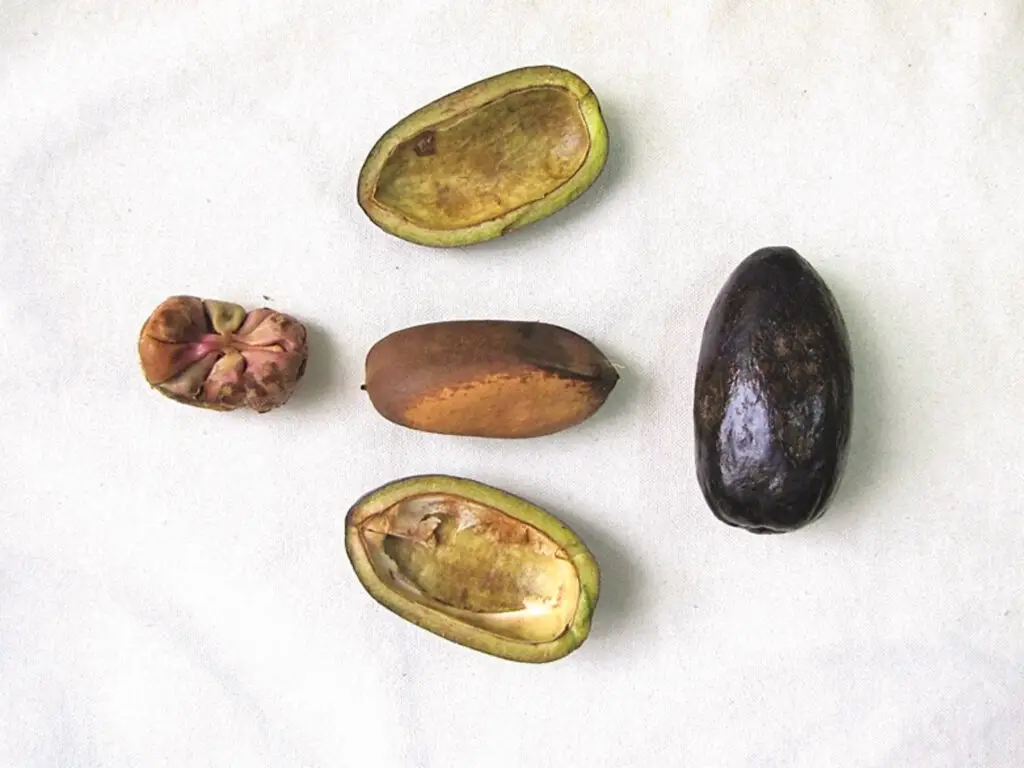
African pear is a purple skin fruit that is native to West Africa and found mainly in southeast Nigeria. This fruit is known by many different names, including bush pear, ube, and butterfruit.
It has a pink color when unripe but turns dark purple when ripe. The pulp of the African pear is buttery and has a sweet taste when steamed to a certain temperature.
It is often served alongside grilled corn and is a very healthy fruit with essential vitamins and minerals.
Summary of African Fruits
I hope you enjoyed looking through the list of important fruits from Africa. Eating fruit is one of life’s simple pleasures, offering a multitude of textures and flavors for every season. From north Africa to southern Africa and everywhere in between, African fruits are a staple of the continent’s diet.

